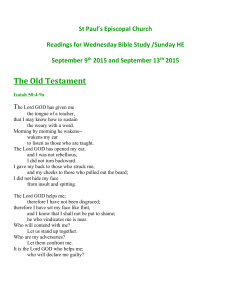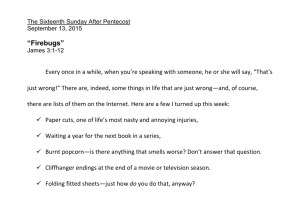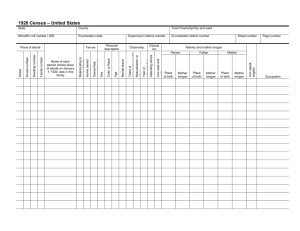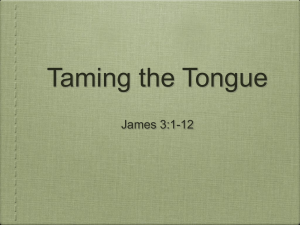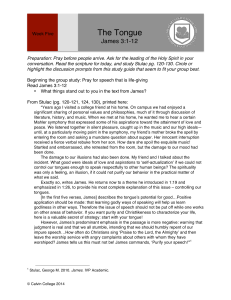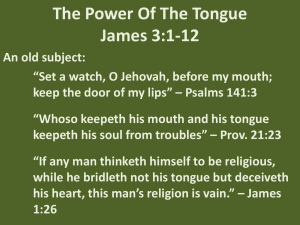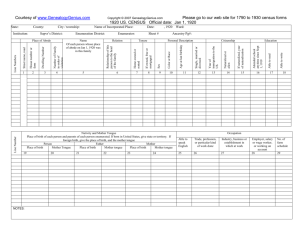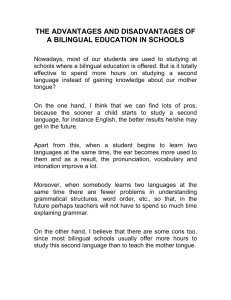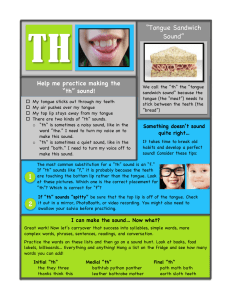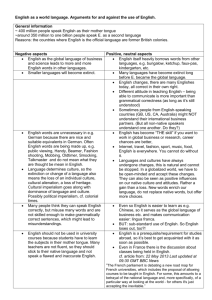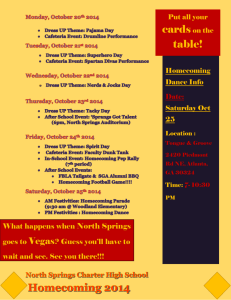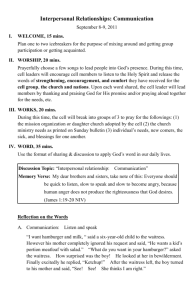Week Four: James 3:1-12
advertisement
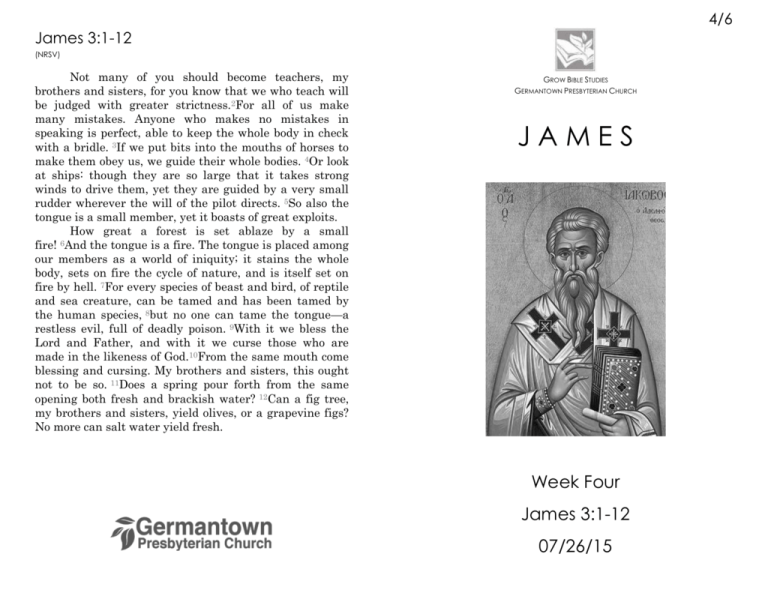
4/6 James 3:1-12 (NRSV) Not many of you should become teachers, my brothers and sisters, for you know that we who teach will be judged with greater strictness.2For all of us make many mistakes. Anyone who makes no mistakes in speaking is perfect, able to keep the whole body in check with a bridle. 3If we put bits into the mouths of horses to make them obey us, we guide their whole bodies. 4Or look at ships: though they are so large that it takes strong winds to drive them, yet they are guided by a very small rudder wherever the will of the pilot directs. 5So also the tongue is a small member, yet it boasts of great exploits. How great a forest is set ablaze by a small 6 fire! And the tongue is a fire. The tongue is placed among our members as a world of iniquity; it stains the whole body, sets on fire the cycle of nature, and is itself set on fire by hell. 7For every species of beast and bird, of reptile and sea creature, can be tamed and has been tamed by the human species, 8but no one can tame the tongue—a restless evil, full of deadly poison. 9With it we bless the Lord and Father, and with it we curse those who are made in the likeness of God.10From the same mouth come blessing and cursing. My brothers and sisters, this ought not to be so. 11Does a spring pour forth from the same opening both fresh and brackish water? 12Can a fig tree, my brothers and sisters, yield olives, or a grapevine figs? No more can salt water yield fresh. GROW BIBLE STUDIES GERMANTOWN PRESBYTERIAN CHURCH JAMES Week Four James 3:1-12 07/26/15 JAMES Week Four: James 3:1-12 1) James follows his discussion of the relationship between faith and works with an extended treatment of the power (and dangers) of speech, personified by “the tongue.” Why do you think James singles out speech, especially following his discussion of faith and works? 6) How should we, as Christians, approach speech, whether it be speech among friends and family or speech in a more public or professional setting? See also James’ words earlier in the letter in 1:19-20. ---------------------------------- (1) “Words are, in my not-so-humble opinion, our most inexhaustible source of magic. Capable of both inflicting injury, and remedying it.” –Albus Dumbledore 2) What do you think James means when he writes, “Not many of you should become teachers” (v. 1)? Should we put limits on how many Sunday School teachers we have? 3) To what does James compare the tongue in vv. 3-5? Do you agree with these comparisons? Why or why not? 4) According to James, “no one can tame the tongue— a restless evil, full of deadly poison” (v. 8). Why do you think James considers the tongue so evil and untamable? 5) James implies that the tongue reveals what is within, comparing speech to the fruit of a fig tree or the yield of a spring (vv. 11-12). What does our own speech say about the state of our hearts? Do you notice inconsistencies (or even hypocrisies) in how you speak? See also Jesus’ words in Matthew 12:34. (2) “[A]ny pretence of being devout that doesn’t result in a serious working-over of speech habits is a sham. This is a central and vital part of what it means to be truly human.” –N.T. Wright (3) “We dwell in a virtual Babel of linguistic confusion and misdirection. One need think only of the advertising industry to appreciate how pervasive is the use of language to at once deceive and seduce, to consciously create by means of words and images multiple illusions in pursuit of which other humans can spend their fortunes and energies.” –Luke T. Johnson
